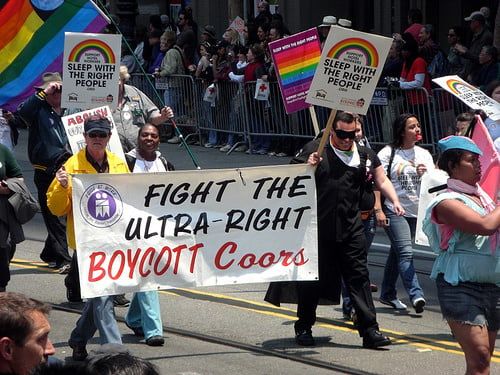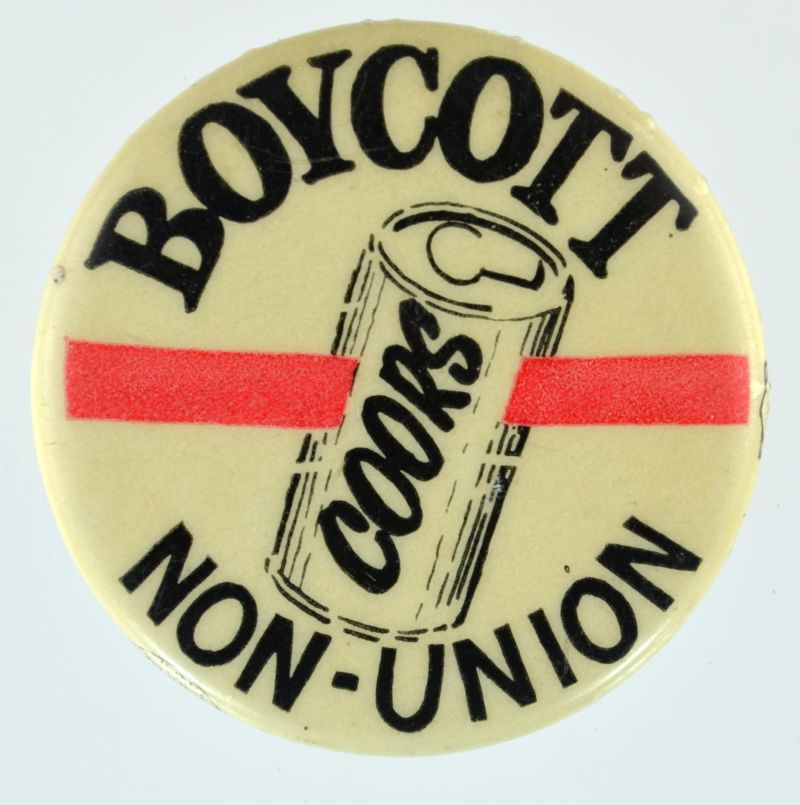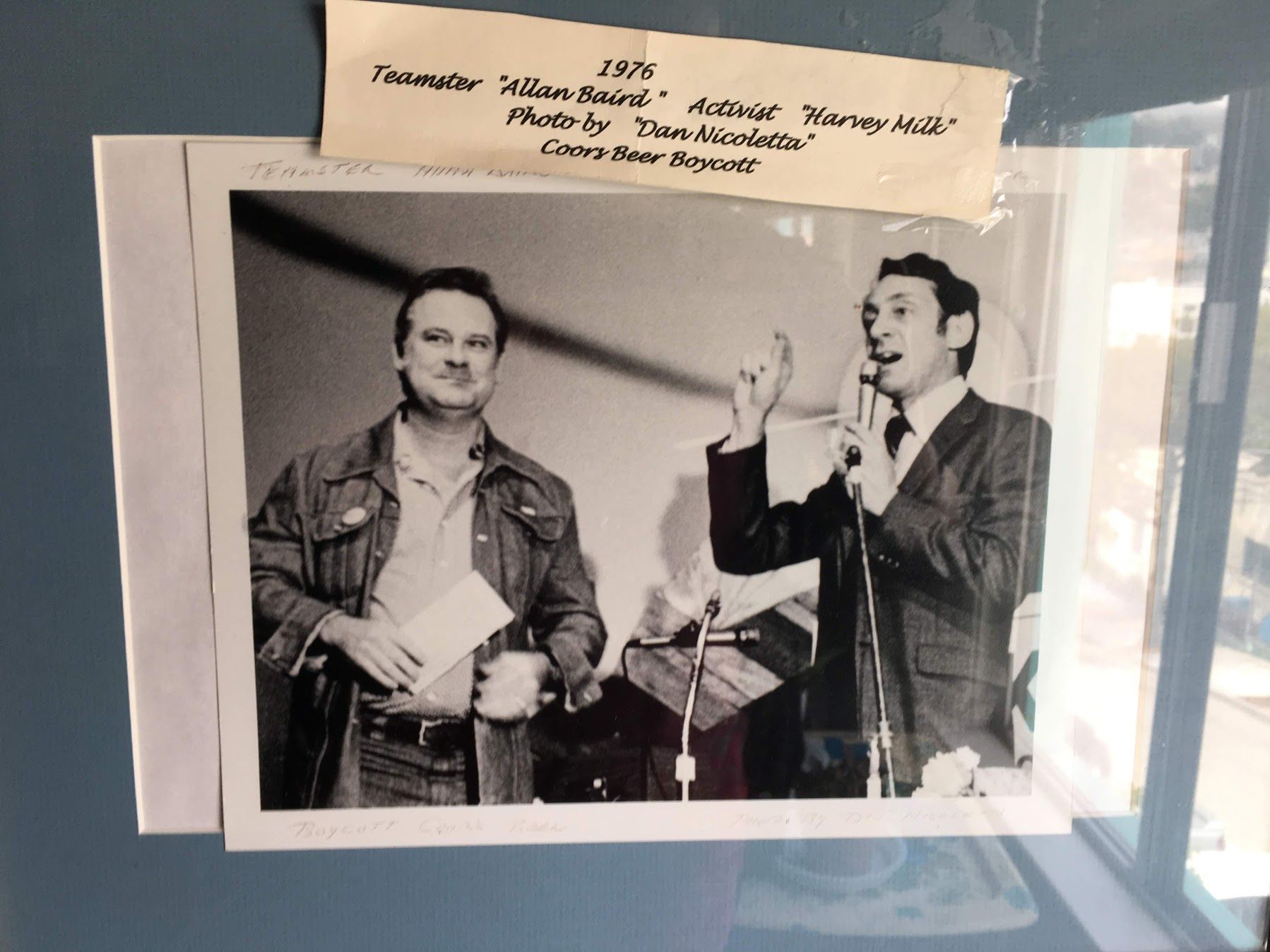Before Bud Light, Gays Boycotted Coors Beer
In the late 1970s and 1980s, Harvey Milk and other LGBTQ activists partnered with the Teamsters and other labor unions to enact one of the most successful boycotts in history.

The 20th century witnessed numerous significant milestones in the fight for LGBTQ+ rights. One event that stands out is the Coors Strike, a series of boycotts and strike actions against the Coors Brewing Company that unfolded in the late 1970s and early 1980s. This boycott, led by LGBTQ+ activists like Harvey Milk, shed light on the discriminatory practices of the Coors Brewing Company and played a crucial role in galvanizing the gay community and its allies in the pursuit of equality.
The Background: The Coors Brewing Company, founded in 1873, was a prominent and influential beer manufacturer based in Golden, Colorado. However, behind the brand's public image lay a deeply discriminatory culture that targeted various marginalized communities, including the LGBTQ+ community. The Coors family, who owned and operated the company, held conservative political views that clashed with the growing demands for civil rights and equality.

The Boycott: The Coors Gay Bar Boycott emerged in response to the company's discriminatory employment practices and its support for conservative political causes, including the funding of organizations opposing LGBTQ+ rights. The primary objective of the boycott was to pressure Coors Brewing Company to change its discriminatory practices and cease its funding of anti-LGBTQ+ initiatives. By targeting Coors products and urging bars to stop selling them, LGBTQ+ activists sought to hit the company where it would hurt the most—their revenue.

The Impact: The boycott gained significant traction in the late 1970s, with LGBTQ+ organizations and activists across the United States partnering with allied labor unions like the Teamsters. It quickly evolved into a nationwide movement, drawing attention to the discriminatory practices of Coors Brewing Company. The activists utilized a range of strategies, including protests, picketing, and spreading awareness through community networks and media channels.
The boycott had a substantial impact on Coors Brewing Company. The negative publicity and economic pressure forced the company to reevaluate its policies. In 1979, Coors implemented an anti-discrimination policy that prohibited discrimination based on sexual orientation. This policy change was a significant victory for the LGBTQ+ community and a testament to the power of collective action and grassroots organizing.
The Legacy: The Coors Gay Bar Boycott marked a turning point in the LGBTQ+ rights movement. It showcased the strength and determination of the community and its allies in combating discrimination. The boycott demonstrated the potential of economic pressure as a tool for social change, influencing the business practices of Coors Brewing Company and setting a precedent for future campaigns targeting discriminatory corporations.
Moreover, the success of the boycott highlighted the importance of solidarity and coalition-building. LGBTQ+ activists joined forces with other social justice movements, fostering alliances that created a more powerful collective voice against discrimination. This intersectional approach became a cornerstone of subsequent LGBTQ+ rights campaigns and helped pave the way for increased understanding and acceptance of diverse identities.
By challenging the Coors Brewing Company's discriminatory practices, LGBTQ+ activists not only secured important policy changes but also laid the groundwork for future advocacy efforts. The boycott's success highlighted the power of collective action, economic pressure, and the importance of alliances across different social justice movements.





